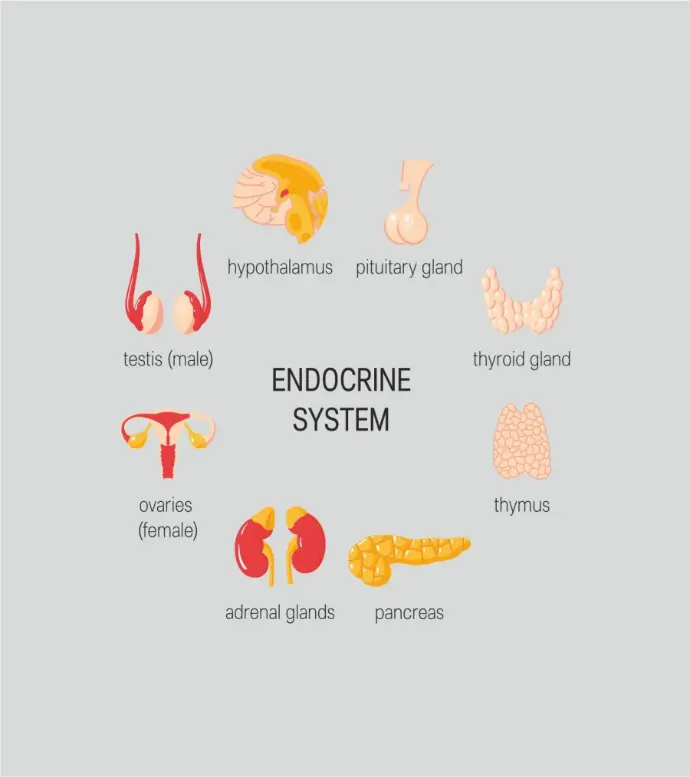>>Spring<< fatigue’ and how good air helps combat it
We all know it: the days are getting longer, temperatures are rising and at some point a spring break is just around the corner. But for many, there's something else that comes before that - a feeling of listlessness and reduced performance: spring fatigue.
For many, this spring fatigue is a mythical creature that tends to come from women's magazines and farmers' diaries. But science disagrees: for them, this type of tiredness is a reality that has been confirmed time and again by studies. But where does this tiredness that plagues those affected before summer come from?
Biology provides the explanation.
Due to the lack of sunshine, our ability to produce the happiness hormone serotonin is limited in winter. In winter, the days are shorter and we are usually well wrapped up. Our body switches into a kind of hormonal rest mode and reduces the production of serotonin.
And suddenly spring is just around the corner: more sunshine and shorter T-shirts take the body by surprise. It has to re-regulate its hormone production within a very short space of time. This presents us with an enormous challenge. The result: we are tired.

Our hormones are to blame
However, tiredness is not just caused by serotonin alone. Other hormones are also affected by our hibernation.
The most important are:
- Serotonin
- Dopamine &
- Melatonin
Serotonin and dopamine are mainly produced during physical activity and prolonged exposure to the sun. Serotonin in particular is also responsible for regulating the oxygen supply and blood flow in the brain. Dopamine, when released, provides a feeling of joy and a ‘high’. Both hormones are at least as important for our well-being as melatonin, which ensures a good night's sleep. This means that the more serotonin and dopamine are released during the day (through sport and activities that we enjoy), the easier it is for our body to produce melatonin in the evening, which helps us to wind down and calm down.
The interaction of these three messenger substances determines our well-being. And this interaction is regulated in the body via a central system - the endocrine system.
The endocrine
system explained simply
Scientists call the sum of the organs that are responsible for our hormone balance, i.e. the hormonal control centre, the ‘endocrine system’.
The best-known building blocks of the endocrine system are the hypothalamus and the thyroid gland. But the body has even more places where light is converted into hormones.
In recent years in particular, various studies have investigated what has a particularly strong impact on this system. And they have come to a rather surprising conclusion:
good air is essential.
Fight against spring fatigue with fresh air
Good air also influences our hormone balance to a large extent. In particular, impurities in the air that we breathe in enter the endocrine system via the bloodstream.
So-called volatile organic compounds (VOCs for short) have a major impact. VOCs are produced, for example, when we cook and burn things in the process. Or when we clean furniture, floors and walls. And these VOCs take advantage of every opportunity: they can attach themselves to fine dust particles floating in the air and thus enter our bloodstream via the lungs and alveolus. Because VOCs disrupt our endocrine system in this way, they are also known as endocrine disruptors (EDCs). Long-term exposure to EDCs can cause a wide range of diseases, including cardiovascular disease, thyroid dysfunction and weakened immune defences.
That is why good air is an important tool not only for fighting springtime fatigue, but also for preventing pollutants from entering our organism and acting as endocrine disruptors in advance. Good air quality can only be achieved with the right ventilation systems and correspondingly highly effective filters. Only with these can a high level of VOC separation be guaranteed. These systems have something over us, they also work for us when we are tired. Even more: even when we are asleep.
https://pubmed.ncbi.nlm.nih.gov/8856388/
https://en.wikipedia.org/wiki/Endocrine_system
https://www.ncbi.nlm.nih.gov/pmc/articles/PMC5973437/
https://www.apa.org/topics/exercise-fitness/stress
https://www.webmd.com/fitness-exercise/how-to-increase-blood-oxygen-level
https://pubmed.ncbi.nlm.nih.gov/2980844/
https://www.reuters.com/article/us-health-pollution-stress-hormones-idUSKCN1AV1VK
